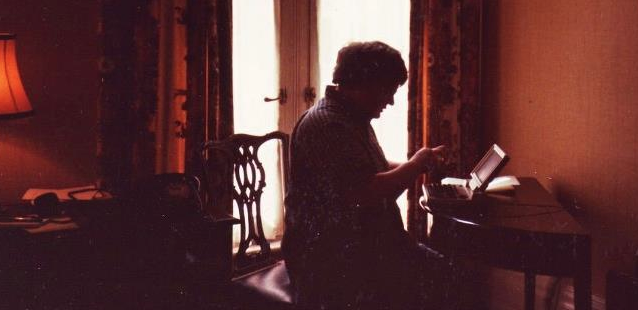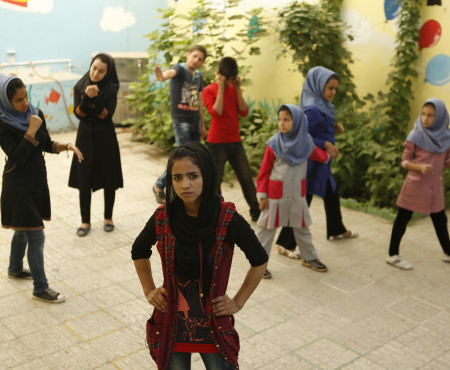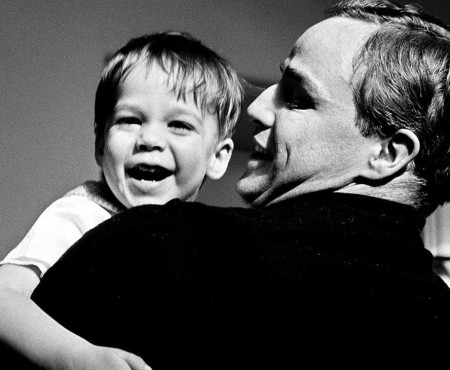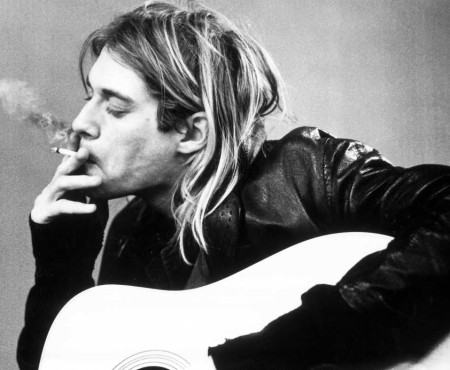There’s heavy rain in Champaign on the second day of the 15th Annual Ebertfest, which begins with a line wrapping half around the block for Paul Cox’s 1987 documentary Vincent, chronicling the life and times of the post-impressionistic artist Vincent Van Gogh.
As I sit in the newly renovated 1920s movie palace (formally known as the Virginia Theater) there’s a slideshow of pictures being projected on the beautiful, sumptuous screen. The pictures are of Roger, some old, some new – all remind us of the man who has brought us all together here today. At this moment some 1,400 people are connected not only out of adoration for the movies, but for Roger Ebert.
While we sit here, the rest of the world is worrying about an explosion in Texas, a tragedy in Boston, and an America struggling to grapple with modern times. Ebertfest has become a respite we all desire – a weekend free of the chaos, the horrific, the dismal reporting of CNN, the angriness of Jeff Wells, or any other event or person that causes distress and frustration.
No distribution deals are underway, no industry people are texting on their cell phones mid-movie, and no publicist is insisting that you “wrap up” your precious fifteen-minute interview with the latest Hollywood starlet. Instead, Ebertfest has wholeheartedly adopted the method of the movies and the viewers come first, everything else second.
 Alas, despite the overwhelming joy this festival emits, we’re still without our pilot this year, and his absence is palatable. I circumnavigate the theater from time to time, wandering aimlessly through the crowd of passionate moviegoers. No matter what direction I head, I keep ending up in front of Roger’s chair– his leather, beaten down brown chair located in the back left of the theater. Just last year my hero was sitting in that same chair signing books, shaking hands, and raising thumbs. He is, unquestionably, irreplaceable. And so we do the only thing we know for certain he’d want us to do: watch and discuss movies.
Alas, despite the overwhelming joy this festival emits, we’re still without our pilot this year, and his absence is palatable. I circumnavigate the theater from time to time, wandering aimlessly through the crowd of passionate moviegoers. No matter what direction I head, I keep ending up in front of Roger’s chair– his leather, beaten down brown chair located in the back left of the theater. Just last year my hero was sitting in that same chair signing books, shaking hands, and raising thumbs. He is, unquestionably, irreplaceable. And so we do the only thing we know for certain he’d want us to do: watch and discuss movies.
First up on tap was a short film entitled To Music, directed by Feike Santbergen and Sophie Kohn, daughter of Ebertfest festival director Nate Kohn. Shot in south France, To Music is a whimsical and quietly meditative ode to the power of music. The short feature, free of “special effects or digital manipulation,” ebbs and flows naturally, radiating beauty as three talented artists begin to work past their issues through art. They perform, simultaneously, in perfect harmony as the two men play the lute and piano, while she dances. One lyrical sequence dovetails into the next, and then To Music suddenly, unexpectedly, ends. Kohn and Santbergen leave us wanting more. We can only hope in the future these two bright filmmakers continue to pursue their cinematic aspirations.
Unfortunately what followed To Music was far less interesting and creative. Paul Cox’s Vincent attempts to delve into the famed painter’s life through narration (all of which are words written by Van Gogh himself) juxtaposed with his awe-inspiring compositions. What originally appears groundbreaking in Vincent quickly devolves into a plodding mess. While I think Mr. Cox is an unabashedly kind, sincere, and wise man, I found Vincent to be ponderous, self-indulgent, esoteric claptrap. Roger always reminded us to watch films with equal amounts of skepticism and affection, and to be honest with our opinions. And so honesty it is.
Thankfully what came after was something Michael Barker (Co-President of Sony Pictures) deemed “a movie made for Ebertfest.” And right he was. In The Family, Patrick Wang’s remarkably impressive and bold directorial debut revolves around Joey Williams (played by Wang), who is forced to cope not only with the sudden death of his homosexual partner Cody Hines (played by Trevor St. John), but the loss of his son Chip Hines (Sebastian Banes) who has been willed to Cody’s sister.
 Rich in theme and character, In The Family explores race, love, homosexuality, and parenting with sheer realism. The film’s organic visual construction, allowing its characters time and space to emote naturally, is as well shot of a movie I’ve seen in years. The nuance and subtlety of Wang’s masterpiece is illustrated in a scene that makes us both cry and laugh within a matter of ten seconds. I spare the details for the sake of going into this movie without any prior knowledge of the plot. All you need to know is that In The Family is a towering achievement in contemporary cinema.
Rich in theme and character, In The Family explores race, love, homosexuality, and parenting with sheer realism. The film’s organic visual construction, allowing its characters time and space to emote naturally, is as well shot of a movie I’ve seen in years. The nuance and subtlety of Wang’s masterpiece is illustrated in a scene that makes us both cry and laugh within a matter of ten seconds. I spare the details for the sake of going into this movie without any prior knowledge of the plot. All you need to know is that In The Family is a towering achievement in contemporary cinema.
After an insightful Q&A with Wang and St. John it was time for a truncated dinner break. We returned to the theater for the last but not least film of the day: Richard Linklater’s twisted black comedy Bernie. Although most people I spoke to had seen the film prior to the screening, the audience was entirely immersed throughout. Based on the life of Bernie Tiede, Jack Back plays the charismatic, warm, and generous mortician who – out of character – murders a wealthy widow to whom he had grown close. Aside from Black’s dynamic performance, it’s the local townspeople of Carthage, Texas, that make Bernie some sort of comedic masterpiece. After a long day of watching films that demanded our attention, captured our intellect, and broke our hearts, it was nice to end the night on a comedic note.
If this year’s Ebertfest has proven anything thus far, it’s that Roger still has the wonderful and unique ability to speak to us through some of his favorite films, both old and new. And like the great films themselves, Roger’s passionate voice continues to live on long after the credits begin to roll.
…
Ebertfest runs from April 17th-21st at the Virginia Theater in Champaign, Illinois.
Follow along via Twitter : @SamFragoso





















2 thoughts on “Dispatch From Ebertfest: A Sweet Short, In the Family, Van Gogh, Linklater, and the Eternal Voice of Roger”
Pingback: Ebertfest: A Discussion with To Music Filmmakers Sophia Kohn and Fieke Santbergen | Movie Mezzanine
Pingback: Interview with Sophie Kohn and Feike Santbergen | Movie Mezzanine